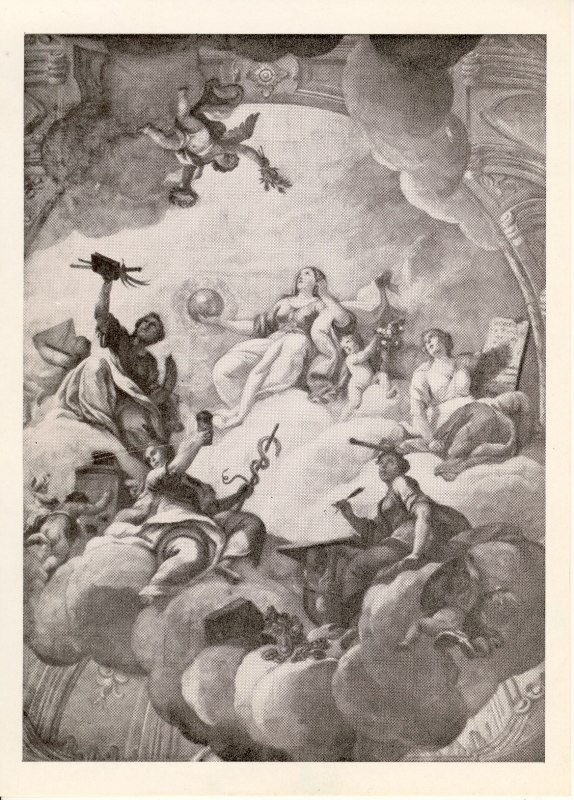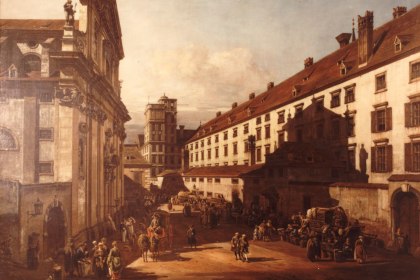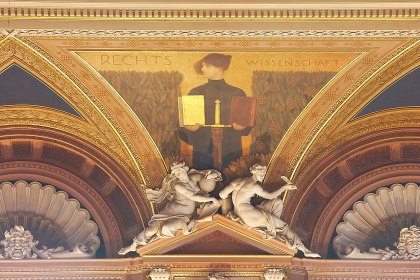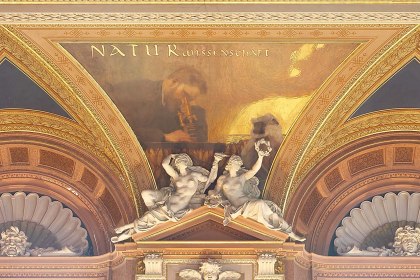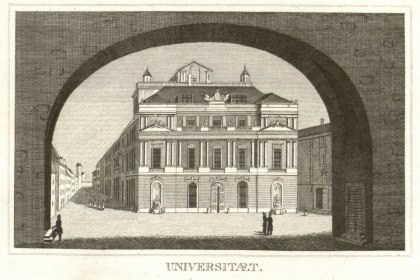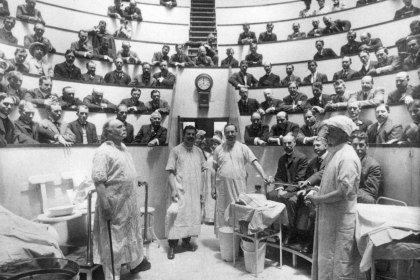Science at the University of Vienna from the 18th to the 19th century
The reforms of the 18th century brought about an orientation of academic studies towards their usefulness and practicality for the functions of the state. The expansion of the absolutist state with its bureaucratic institutions and central authorities required officials that were professionally qualified and loyal to the ruler. Medical training was also focused on, so as to improve the public’s access to good healthcare.
Rigid state control of the universities in the period of Restauration after the French Revolution and the Napoleonic Wars led to the danger of disconnecting university teaching from international scientific development.
Only with the proclamation of freedom of teaching and study and the Thun-Hohenstein educational reforms in 1849/50, science and research became the university’s central tasks next to teaching. These new conditions led to an unexpected development of intellectual resources which in turn helped the University of Vienna gain international renown in various scientific disciplines. Representative for this is the development of Viennese scientific “schools”, for example in medicine, national economy or art history.
Zuletzt aktualisiert am 04/15/24
-
Astronomy | The Vienna Observatory through the ages
1755–1900 -
Law and Economics, part I
1365–1900 -
Physics in Vienna in the 19th century
1850–1915
-
The university as „Hohe Schule“
1790–1848

